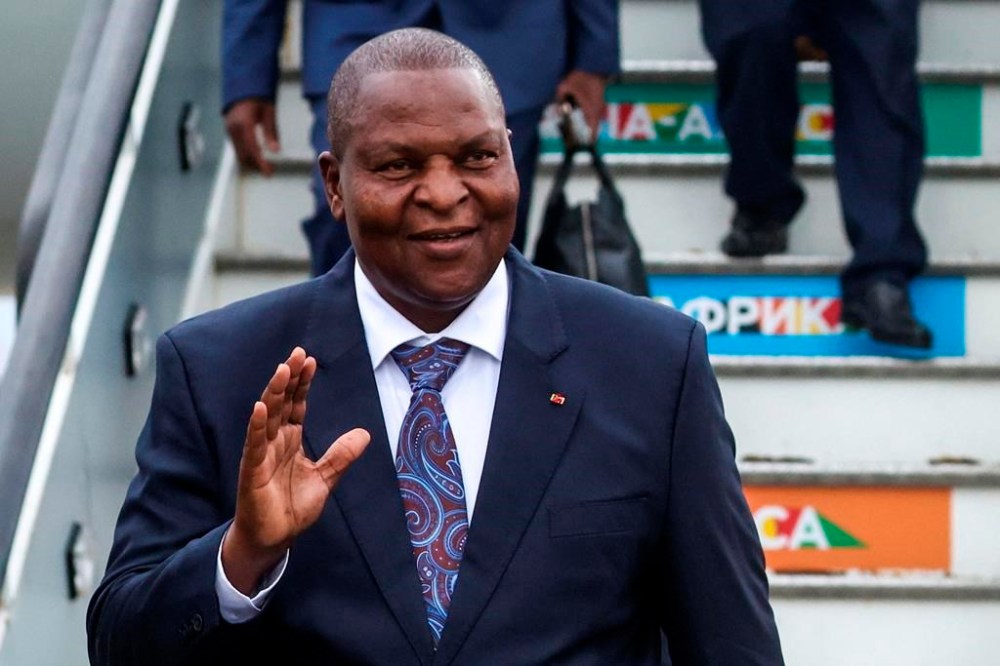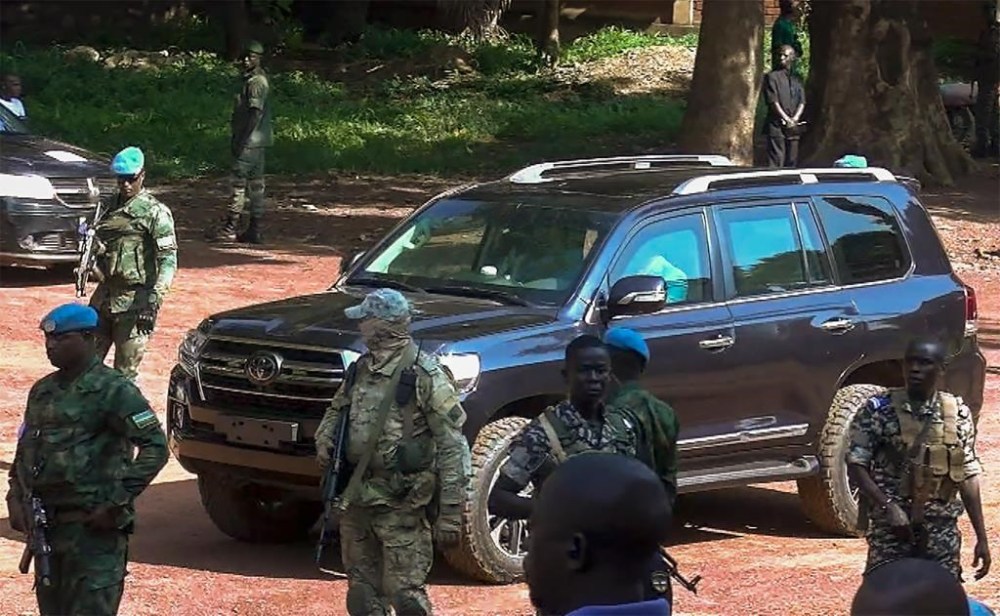Constitutional referendum to remove presidential term limits divides Central African Republic
Advertisement
Read this article for free:
or
Already have an account? Log in here »
To continue reading, please subscribe:
Monthly Digital Subscription
$1 per week for 24 weeks*
- Enjoy unlimited reading on winnipegfreepress.com
- Read the E-Edition, our digital replica newspaper
- Access News Break, our award-winning app
- Play interactive puzzles
*Billed as $4.00 plus GST every four weeks. After 24 weeks, price increases to the regular rate of $19.00 plus GST every four weeks. Offer available to new and qualified returning subscribers only. Cancel any time.
Monthly Digital Subscription
$4.75/week*
- Enjoy unlimited reading on winnipegfreepress.com
- Read the E-Edition, our digital replica newspaper
- Access News Break, our award-winning app
- Play interactive puzzles
*Billed as $19 plus GST every four weeks. Cancel any time.
To continue reading, please subscribe:
Add Free Press access to your Brandon Sun subscription for only an additional
$1 for the first 4 weeks*
*Your next subscription payment will increase by $1.00 and you will be charged $16.99 plus GST for four weeks. After four weeks, your payment will increase to $23.99 plus GST every four weeks.
Read unlimited articles for free today:
or
Already have an account? Log in here »
Hey there, time traveller!
This article was published 30/07/2023 (802 days ago), so information in it may no longer be current.
BANGUI, Central African Republic (AP) — The Central African Republic went to the polls Sunday in a highly anticipated vote on a new constitution that would remove presidential term limits.
President Faustin Archange Touadera wants to extend presidential terms from five to seven years and remove the previous two-term limit, enabling him to run again in 2025.
The new constitution would replace the one adopted at Touadera’s inauguration in 2016, when the country was in a civil war and 80% of it was not under state control. If the new constitution is passed, it could entrench the ruling party’s power indefinitely, analysts say.

“This referendum basically confirms the fears of authoritarian drift” in Central African Republic, said Enrica Picco, Central Africa project director with the International Crisis Group. The new constitution would weaken checks on the executive by opposition parties, closing the space for Central Africans to participate in democratic decision-making, she said.
The proposed changes also would lift requirements that executive decisions be debated by the legislature and would permit Central Africans with dual nationality to vote.
The mineral-rich but impoverished nation has faced intercommunal fighting since 2013, when predominantly Muslim Seleka rebels seized power and forced then-President Francois Bozize from office. Mostly Christian militias later fought back, also targeting civilians in the streets. The United Nations, which has a peacekeeping mission in the country, estimates the fighting has killed thousands and displaced over a million people, one fifth of the country’s population.
When Touadera won re-election in 2020, barely a third of Central Africans made it to the polls, largely due to threats of violence by rebel groups. Touadera’s government has relied on support from U.N. peacekeepers, soldiers from neighboring Rwanda and Russian mercenaries from the Wagner Group to keep rebels out of the capital Bangui.
“Now that there is peace … the time has come for us to take action,” said Fidel Gouandjika, a presidential adviser.
Opposition groups accuse the ruling party of making a draft of the new constitution publicly available too late for people to make informed decisions, less than three weeks before the referendum, said Picco.

Together with opposition parties they are calling on Central Africans to vote against the proposed constitution, or abstain from the referendum.
“Touadera wants to see himself as an emperor, and he wants to make our country what he wants, not what Central Africans want,” said former Prime Minister Nicolas Tiangaye.
The preliminary results of the referendum are expected to be announced in just over a week, to be finalized by the constitutional court in late August.

